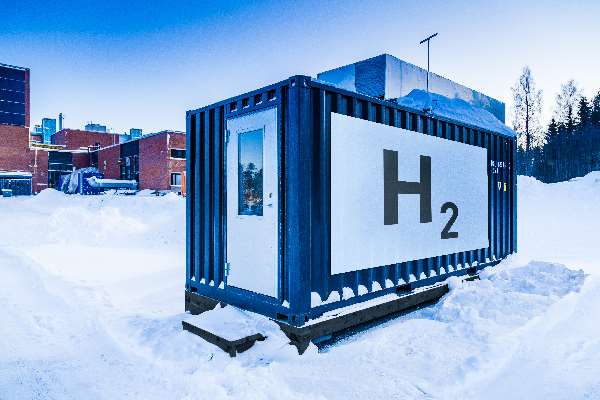The Lappeenranta University of Technology (LUT) and VTT Technical Research Centre of Finland are together building a unique demo plant that will pilot the production of renewable fuels with solar power. The sun, water and carbon dioxide extracted from air will act as the raw materials for power.
The production plant made up of container-sized units assembled on the LUT campus is to be completed in 2017. The purpose of this cooperation project is to convert solar power-produced electricity into gas or liquid fuels.
The research plant, which has been named SOLETAIR, will be made up of three components: VTT will design the equipment that will extract carbon dioxide from air and store it. LUT’s task will be to build a device that will utilise electricity to produce hydrogen through the electrolysis of water. Another of the VTT’s tasks will be to develop a synthesis device that will produce e.g. methane or liquid fuel from carbon dioxide or hydrogen.
The plant will be used to demonstrate how processes can be combined in a way that allows the utilisation of renewable electricity in the production of e.g. methane, fuels and chemicals. The demo plant could thus also function as a fuelling station for vehicles that run on hydrogen or natural gas.
“This research is the first of its kind in Finland in this type of combination of processes,” states LUT Professor Jero Ahola, who is responsible for the research.
“The project will produce expertise for enterprises in various fields, and it will result in a multidisciplinary industrial integration that no one company can achieve on its own. Collaboration will strengthen the expertise of Finnish industry in this sector,” states VTT’s Principal Scientist Pekka Simell. He is responsible for coordinating the project as well as VTT’s share of the research.
To help cut carbon dioxide emissions, in the future, all sectors of industry must be within the scope of carbon dioxide emission-free energy production. In practice, this means that the future’s most important energy market will be the electricity market, where different sectors of industry will operate with electricity produced from carbon dioxide emission-free energy sources. Combining the electricity system and other energy systems will be successful with the researched methods.
The research will aim to build expertise that will facilitate the implementation of industrial-scale solutions. The project’s second key aim will be to create new business opportunities for Finnish industry.
LUT and VTT have invested one million euros in the plant. Tekes and a group of Finnish companies including ABB, Gasum, GreenEnergy Finland, Hydrocell, Ineratec GmbH, Proventia Emission Control Oy and Trafi Finnish Transport Safety Agency, will fund the research.



















